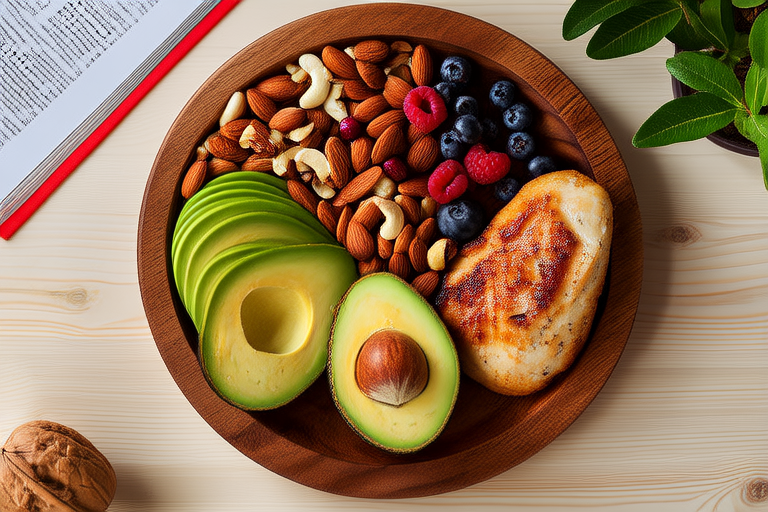The Importance of a Healthy Diet in Maintaining Overall Well-being
A healthy diet is fundamental to our overall well-being, influencing not only our physical health but also our mental and emotional states. Proper nutrition provides the necessary fuel for our bodies to function optimally, supporting everything from immune system strength to brain health. In this article, we will explore the significance of a balanced diet and provide practical guidelines for achieving better nutrition. We’ll discuss the roles of macronutrients and micronutrients, the importance of hydration, portion control, and the inclusion of whole foods. Additionally, we will examine the benefits of a plant-based diet, the dangers of processed foods and sugars, and the role of regular physical activity. Finally, we will offer tips for making sustainable dietary changes that can lead to long-term health.
Understanding Macronutrients and Micronutrients
Macronutrients, which include carbohydrates, proteins, and fats, are essential for providing energy and supporting various bodily functions. Carbohydrates serve as the primary source of energy for the body, while proteins are crucial for building and repairing tissues. Fats are important for hormone production and protecting vital organs. Balancing these macronutrients is key to maintaining optimal health.
Micronutrients, on the other hand, consist of vitamins and minerals that play a critical role in numerous physiological processes. They support bone health, immune function, and cell communication. Ensuring adequate intake of both macronutrients and micronutrients is essential for overall well-being.
The Role of Hydration and Portion Control
Staying hydrated is vital for maintaining proper bodily functions. Water helps regulate body temperature, transport nutrients, and eliminate waste products. It’s recommended that adults consume at least eight glasses of water daily, though individual needs may vary based on factors such as climate, activity level, and overall health.
Portion control is another important aspect of a healthy diet. Eating appropriate portions ensures that you consume an adequate amount of calories and nutrients without overloading your digestive system. This practice helps prevent weight gain and promotes satiety, reducing the likelihood of snacking on unhealthy foods between meals.
Inclusion of Whole Foods
Whole foods, such as fruits, vegetables, whole grains, and lean proteins, provide a wide range of beneficial nutrients with minimal processing. These foods are rich in fiber, antioxidants, and other bioactive compounds that promote good health. Incorporating more whole foods into your diet can help reduce the risk of chronic diseases and improve overall well-being.
The Benefits of a Plant-Based Diet
A plant-based diet focuses primarily on consuming foods derived from plants, including fruits, vegetables, grains, nuts, and seeds. This type of diet has been linked to numerous health benefits, including lower rates of heart disease, diabetes, and certain types of cancer. Plant-based diets are also associated with improved weight management and increased longevity.
One of the main advantages of a plant-based diet is its emphasis on nutrient-dense foods that are high in fiber and low in saturated fats. By reducing the consumption of animal products, individuals can decrease their intake of cholesterol and harmful fats while increasing their intake of essential vitamins and minerals.
Limits on Processed Foods and Sugars
Processed foods often contain high levels of added sugars, unhealthy fats, and sodium, which can contribute to obesity, heart disease, and other health issues. Limiting the consumption of these items is crucial for maintaining good health. Instead, opt for minimally processed options that retain their natural nutritional value.
Added sugars, particularly those found in sugary beverages and sweets, should be consumed sparingly. Excessive sugar intake has been linked to numerous health problems, including tooth decay, weight gain, and increased risk of type 2 diabetes. Choosing natural sweeteners like honey or maple syrup in moderation can help satisfy cravings without compromising health.
The Role of Regular Physical Activity
Regular physical activity complements a healthy diet by enhancing cardiovascular fitness, improving muscle tone, and promoting mental well-being. Engaging in activities such as walking, cycling, swimming, or yoga can boost metabolism, increase energy levels, and reduce stress. Aim for at least 150 minutes of moderate aerobic exercise per week, along with strength training exercises two days per week.
Practical Tips for Sustainable Dietary Changes
Making gradual changes to your eating habits can make it easier to adopt healthier choices over time. Start by incorporating small adjustments, such as swapping out refined grains for whole grains or adding a serving of vegetables to each meal. Gradual changes are more likely to become permanent than drastic shifts that may feel overwhelming.
Another useful strategy is to plan meals in advance. Planning ahead allows you to prepare nutritious meals and snacks, reducing the temptation to reach for convenience foods when pressed for time. Preparing large batches of dishes that can be easily reheated throughout the week can save time and money while ensuring you have access to healthy options.
Lastly, it’s important to listen to your body and make adjustments as needed. Pay attention to how different foods affect your energy levels, mood, and digestion. If something doesn’t agree with you, consider modifying your approach or seeking guidance from a healthcare professional.
Conclusion
A healthy diet plays a pivotal role in maintaining overall well-being by providing essential nutrients and supporting various bodily functions. By balancing macronutrients and micronutrients, staying hydrated, practicing portion control, and incorporating whole foods, individuals can achieve better nutrition and improve their health outcomes. The benefits of a plant-based diet, combined with limited consumption of processed foods and sugars, further enhance these positive effects. Regular physical activity complements a nutritious diet by boosting cardiovascular fitness, improving muscle tone, and promoting mental well-being. To ensure long-term success, make gradual dietary changes, plan meals in advance, and listen to your body’s needs. With these strategies in mind, you can embark on a journey toward better health and sustained vitality.










